Shearwater - Interview
by John Clarkson
published: 24 / 8 / 2007
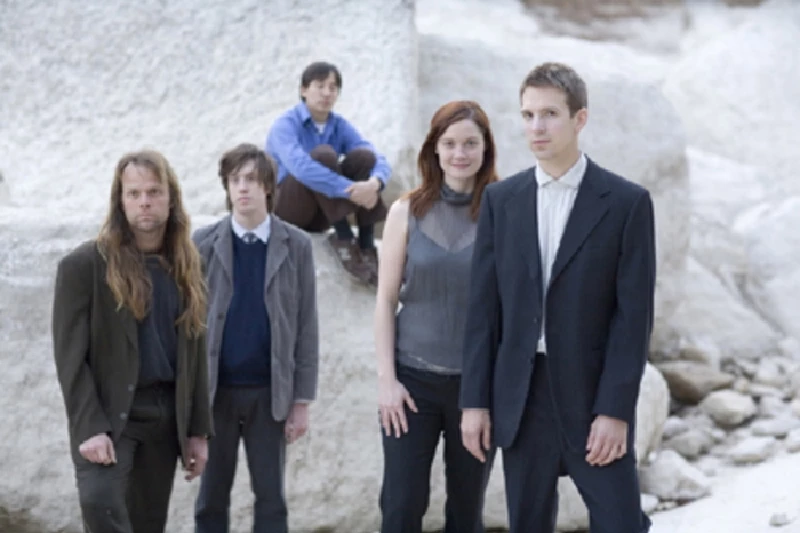
intro
After being dropped by their record label, Shearwater have just re-released their 2006 fourth album, 'Palo Santo', on the larger Matador Records with five songs re-recorded and a CD of extra tracks. John Clarkson speaks to front man Jonathan Meiburg about it
Shearwater has been a band that since its inception in 2001 has constantly reinvented itself. Begun by Jonathan Meiburg and Will Sheff as a side project to their regular group, Austin, Texas-based alt. indie folk outfit Okkervil River, and an outlet for their quieter songs, it has since become its own entity, and for multi-instrumentalist Meiburg, who like Sheff has remained with both bands, his main musical project. Shearwater’s first three albums, ‘The Dissolving Room’ (2001), ‘Everybody Makes Mistakes’ (2002) and ‘Winged Life’ (2004) all had an austere folk sound, but their fourth album ‘Palo Santo’ (2006), the first to be completely written by Meiburg, while maintaining an element of that, is a much more abstract and paradoxical record. Part pristine in sound, part slackerish, sharp fields of static and distortion merge with hazy and languid passages of great beauty across its 11 tracks which provide a loose biography of Warhol film star and Velvet Underground member, Nico. ‘Palo Santo’ was released initially by Misra Records, who had also released ‘Everybody Makes Mistakes’ and ‘Winged Life’. When Misra, however, dropped Shearwater a few weeks after it release and halfway through a tour to promote it, the band, however, almost immediately signed to Matador Records. Matador re-released ‘Palo Santo’ in a new edition at the end of August with five tracks re-recorded, and an additional CD of extra tracks which includes four new songs and demo versions of four songs from the album. Pennyblackmusic met up with Jonathan Meiburg to speak to him about the album’s relaunch. PB : 'Palo Santo' is inspired lyrically by the life of Nico. What was the appeal to you of Nico ? JM : A few years ago I discovered her later albums, from 'The Marble Index' to 'Fata Morgana', and they astonished me. There's really nothing like them; they seem entirely singular, and, although her voice was the same one I remembered from 'Femme Fatale', the songs and the accompanying music - vast, empty spaces and crystalline landscapes that were both beautiful and eerie - really sucked me in for a while. The real mystery seemed to lie between 'Chelsea Girls' and 'The Marble Index' - what happened between those two records? Or was 'The Marble Index' Nico suddenly "revealed", without the constraints she'd accepted as part of the Warhol crowd ? Instead of coy and naive, sad and beguiling, suddenly she became commanding, frightening,almost inhuman. And I thought, as I was writing the record, why not try to look into that space ? I did the usual research you'd do about her life, but the really important stuff - why she made the art that she did - is all between the lines. People who knew her often talked about her as almost unknowable, that she seemed as if she was living in another world, and even as her life disintegrated (and she, to some degree, seems to have enjoyed destroying herself) she maintained an odd and irresistible magnetism. For want of a better explanation, I guess I got pulled into her orbit too...so as I was constructing the album I borrowed from different incidents in her life, from the way her friends felt about her, from ways that I imagined she might have felt, and as I kept writing she kind of guided me through the album. Some of the songs, like the first and last ones, are written from "her" perspective. PB : This was the first of the four Shearwater albums to date in which you have written all the songs and also provided all the vocals. Will Sheff played on 'Paolo Santo', but didn't write any of the music or lyrics itself. What happened to him in this recording ? Was he just busy with Okkervil River ? Can you see him writing music or singing on any subsequent Shearwater albums ? JM : When we got together for a weekend to record demos for 'Palo Santo', it was clear almost immediately that I had a set of songs that somehow fitted together (some of these demos are included on the new bonus disc), and that adding a few songs of Will's might disrupt or dilute the thing. I enjoyed the records that we did together, but I think it's important, if you've got a partnership going like that, that you weight the voices and the songs equally, or it can start to become unbalanced in an unsatisfying way. Since then Okkervil's been busier than ever, and Shearwater's sort of become "my" band, and I think everyone's happy with it this way. PB : As well as leading Shearwater and playing in Okkervil River, you also play keyboards for Bill Calahan when he is on tour. How easy is it for you to combine your commitments to all three projects ? Is Shearwater your main priority ? JM : It's getting more difficult trying to keep all the balls in the air these days. Shearwater is my first priority, though I do really enjoy playing with Okkervil and not being out there in front. It's a completely different experience playing with each band; I almost feel like a different person. But Shearwater is dearer to my heart, artistically. As for playing with Bill, you never know who he's going to ask to play with him on a given tour, so it's an honour even to be asked once. He's an extraordinary performer and a pleasure to work with - he really lets you find your own way within his songs. And it's a fun for me to get to play on songs that I loved first as a fan. I also think that playing with Thor Harris in Bill's band has changed the way we play together in Shearwater; he plays very differently with Bill and I've become more aware of his incredible range as a percussionist. PB : 'Palo Santo' is an album of quite extreme contrasts. It has quite an icy sound at some points, and a warm sound at others. At times it is pristinely played. At other times it is more shambolic. You put instruments together which shouldn't work, but remarkably do. Your voice sounds controlled sometimes, and then distraught at others. It is a disorienting, but totally compelling experience. Was that your intention ? JM : That's very flattering. I wanted to make a record that pulled, emotionally, in a lot of different directions, and my hope was that it wouldn't seem too disjointed. But I was pleased with how it turned out. It's funny, my favorite song is the last one, 'Going is Song', but we've never been able to play it live for some reason. PB : You thank "the islands of Elephant Jason, Santiago and Ibiza" in your credits. Why did you do that ? Did you record some of 'Palo Santo' there ? JM : I wrote some of the songs for the album in the Galapagos, on the island of Santiago, while I was working on a study of Galapagos Hawks there (Palo Santo trees grow there, and it's where I first saw them). At the time I was thinking of the album as a sort of imaginary archipelago made of songs. Elephant Jason is an island in the Falklands where I had an epiphany in 1997 while I was watching a golden cloud floating over an island. And Ibiza is where Nico died (the first song on 'Palo Santo' takes place there). PB : After you were dropped by Misra mid-tour , you signed to Matador quite quickly. Why did the relationship with Misra come to such an abrupt end ? The album is being released with a whole CD of extra tracks, and you have also had the chance to re-record five of the original songs. Do you see the relationship with Misra coming to an end , with all due respect to them, as now a blessing in disguise ? JM : Misra helped us through some really important years when we were figuring out what we wanted to be and we're grateful to them for their support. But we've certainly felt good about Matador; we've enjoyed working with them on the new 'Palo Santo' and we're looking forward to the new record that we're starting in a couple of months. PB : You paid for those five tracks to be re-recorded out of the band's own budget. Often when you take an album out on the road the songs can change a lot and develop a new character. Why did you decide to re-record those songs ? Was it because of that ? The original album took months to record, but you did those new recordings in less than a week. Why do you think it came together so quickly ? JM : Matador would have been happy to re-release the album as it was, and I think they were a bit baffled when we said that we wanted to overhaul it so completely. But we felt that we were playing the songs much better than we had back when we made the first version, so I guess the answer is "yes" ; we "knew" the songs much better and had played them hundreds of times. It makes it pretty easy to knock them out in the studio when you feel like you know what you're doing. What takes time in the studio is finding your way, figuring out what works and what doesn't. In the end Matador was very pleased that we'd taken the time to re-do it. PB : Whose idea was it to put out the album of extra tracks ? Was that the band's or Matador's ? JM : Ours. I wanted to expand the album to encourage people to listen again, even if they'd already heard the first version, since I really felt that we'd succeded in reimagining the album. In the 2-disc version you can 'see' the whole thing from start to finish, from a few of the early demos (which I'm fond of) to outtakes, little instrumental pieces, and of course the re-recorded and remastered original album. Matador put up a little website at www.theascentofpalosanto.com where you can compare demos of the re-recorded songs to the final versions. PB : While Will Sheff's lyrics tend to be more narrative, yours tend to be more abstract and have less conventional structures. You have said in a previous interview about your listeners that you "don't want you to know anything about me. I want you to identify with the songs, but not because you believe you identify with me." Do you think that you achieved that on 'Palo Santo' ? JM : I hope so. I'm still working on that. I do think that my 'style' and Will's have diverged and solidified in the last couple of years. PB : Shearwater have an album of all new material coming early next year. Does it have a title ? What direction do you see that taking ? JM : Yes, it does, but I don't want to reveal that just yet in case I change my mind. We've been practicing about 15 new songs and performing a few of them in recent shows. Some of them are more similar to 'Palo Santo', but others strike out in different directions. And I'm still finding my way through the album as a whole, figuring out what makes it tick. Right now it seems to be a meditation on the destruction of the natural world; but don't think it's all going to be dreary in tone; some of it should make you dance your pants off, and one of the songs has my favorite melody I've ever written. PB : Thank you.
Band Links:-
http://shearwatermusic.com/http://shearwater.bandcamp.com/
https://www.facebook.com/ShearwaterBand
https://www.instagram.com/ShearwaterBand/
https://twitter.com/ShearwaterBand
http://www.songkick.com/artists/274134-shearwater
Picture Gallery:-
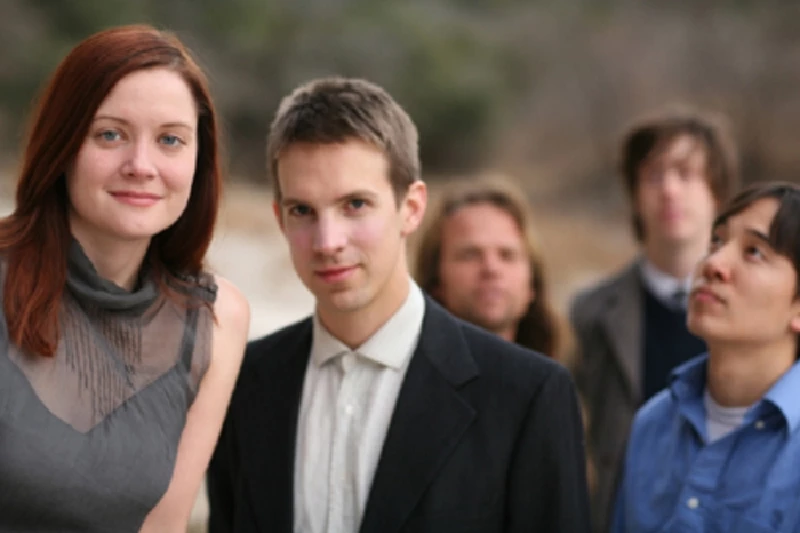
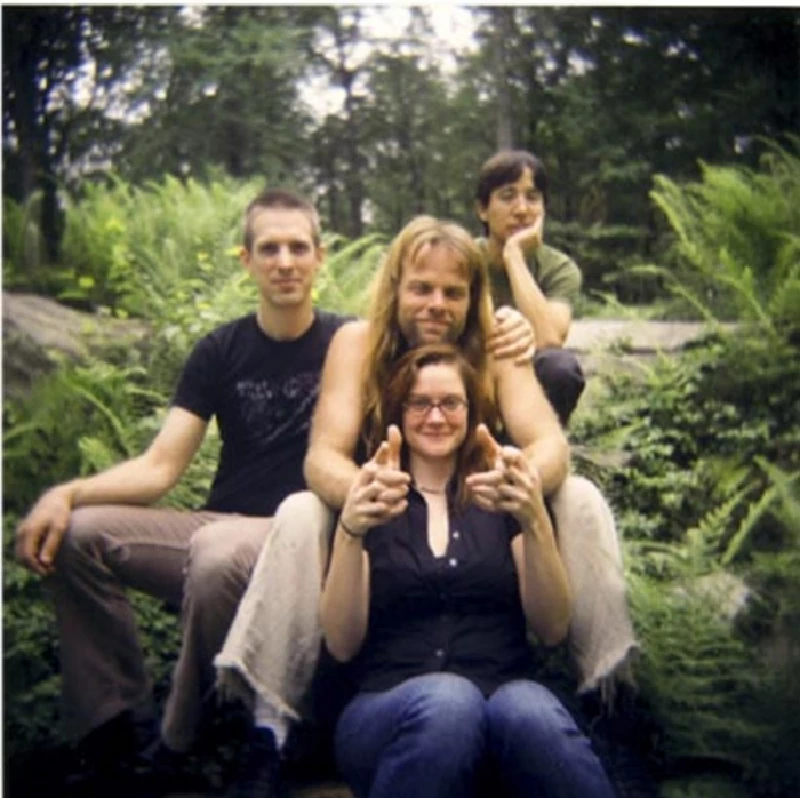
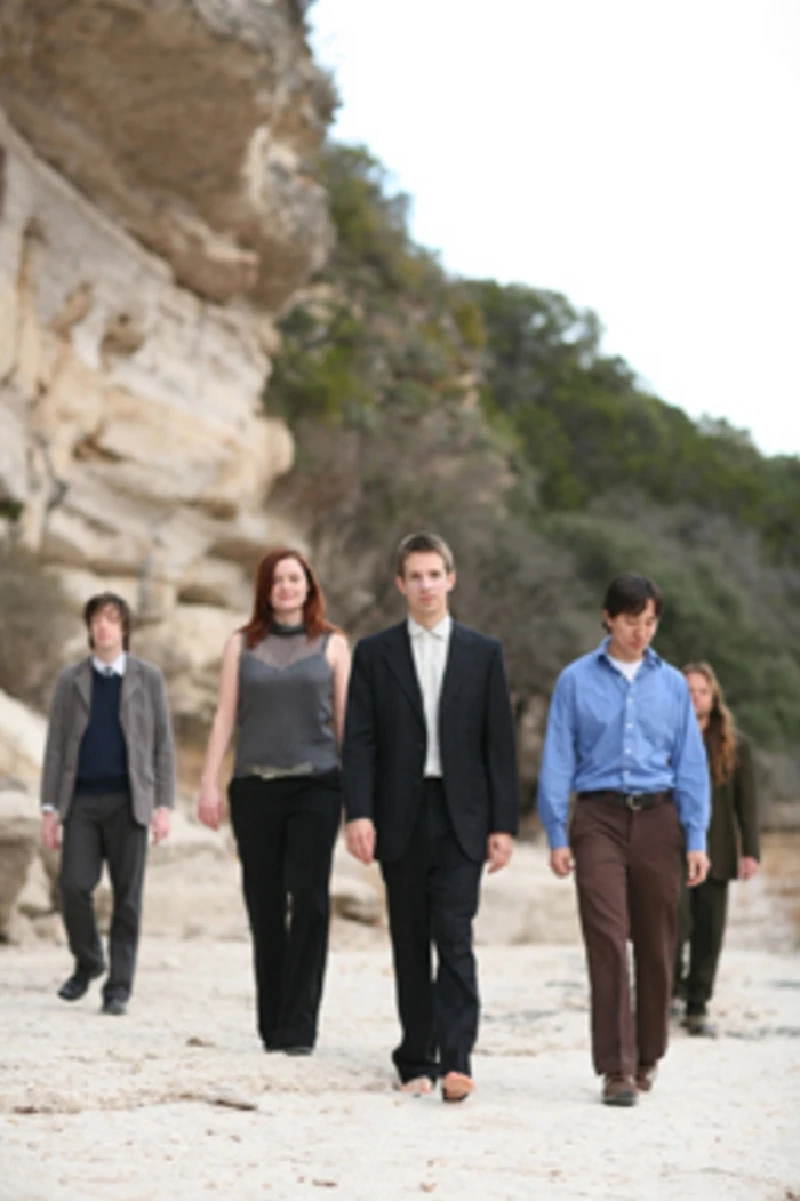
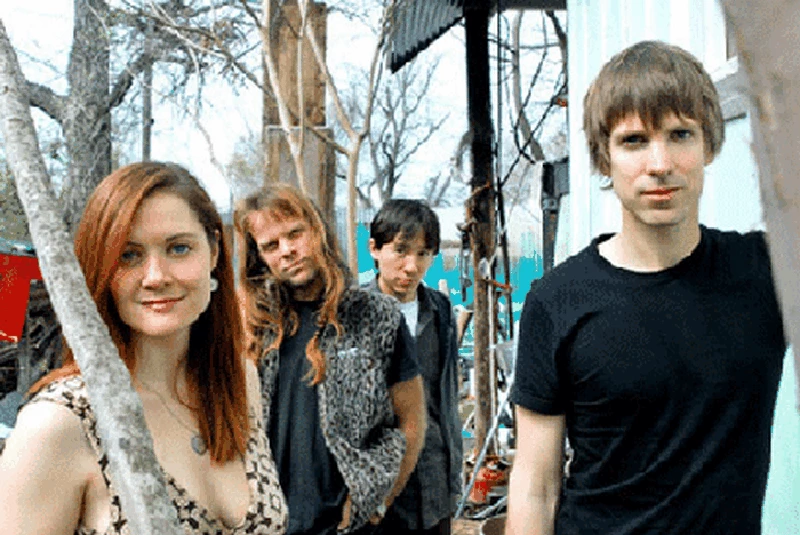
live reviews |
|
Scala, London, 3/4/2012 |
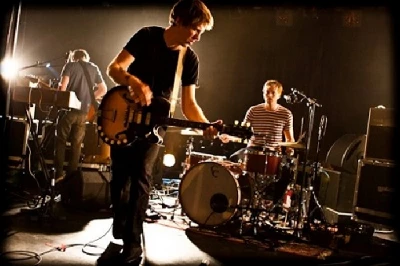
|
| Chris O'Toole watches still underappreciated dark folk rockers Shearwater play a superb set in their biggest gig to date yet at the Scala in London |
| St Giles Church, London, 22/11/2008 |
| Bush Hall, London, 17/9/2008 |
soundcloud
reviews |
|
Jet Plane and Oxbow (2016) |
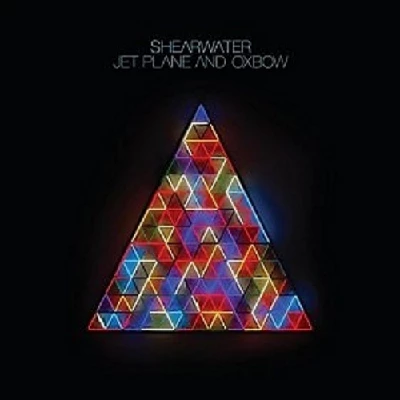
|
| Assured eighth album from undervalued Texan-based experimental band, Shearwatar |
| Animal Joy (2012) |
| The Golden Archipelago (2010) |
| The Snow Leopard EP (2008) |
| Rook (2008) |
| Winged Life (2005) |
most viewed articles
current edition
John McKay - InterviewCathode Ray - Interview
Robert Forster - Interview
When Rivers Meet - Waterfront, Norwich, 29/5/2025
Spear Of Destiny - Interview
Fiona Hutchings - Interview
Carl Ewens - David Bowie 1964 to 1982 On Track: Every Album, Every Song
Chris Wade - Interview
Shrag - Huw Stephens Session 08.12.10 and Marc Riley Session 21.03.12
Brian Wilson - Ten Songs That Made Me Love...
previous editions
Heavenly - P.U.N.K. Girl EPBoomtown Rats - Ten Songs That Made Me Love....
Manic Street Preachers - (Gig of a Lifetime) Millennium Stadium, Cardiff, December 1999
Allan Clarke - Interview
Oasis - Oasis, Earl's Court, London, 1995
Barrie Barlow - Interview
Beautiful South - Ten Songs That Made Me Love...
Pixies - Ten Songs That Made Me Love...
Chuck Prophet - Ten Songs That Made Me Love...
Dwina Gibb - Interview
most viewed reviews
current edition
Peter Doolan - I Am a Tree Rooted to the Spot and a Snake Moves Around Me,in a CircleVinny Peculiar - Things Too Long Left Unsaid
Garbage - Let All That We Imagine Be The Light
Vultures - Liz Kershaw Session 16.06.88
John McKay - Sixes and #Sevens
Little Simz - Lotus
HAIM - I Quit
Pulp - More
Lapsley - I'm a Hurricane, I'm a Woman In Love
Billy Nomates - Metalhorse
Pennyblackmusic Regular Contributors
Adrian Janes
Amanda J. Window
Andrew Twambley
Anthony Dhanendran
Benjamin Howarth
Cila Warncke
Daniel Cressey
Darren Aston
Dastardly
Dave Goodwin
Denzil Watson
Dominic B. Simpson
Eoghan Lyng
Fiona Hutchings
Harry Sherriff
Helen Tipping
Jamie Rowland
John Clarkson
Julie Cruickshank
Kimberly Bright
Lisa Torem
Maarten Schiethart